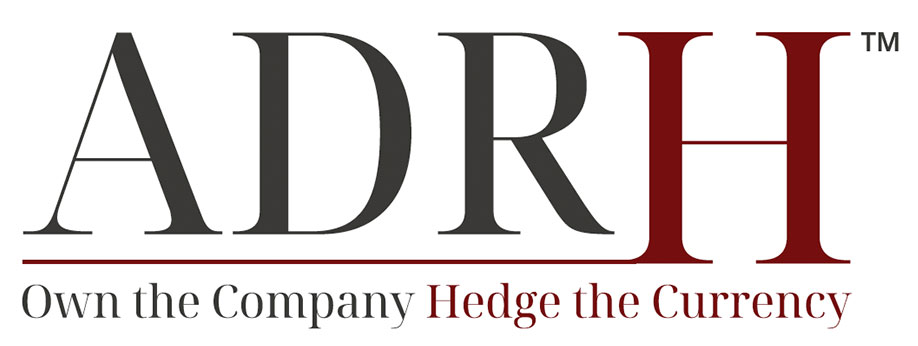FAQs
When American investors purchase ADRs they not only have exposure to changes in the share price but also to the movements of the foreign currency relative to the US$. ADRHs have an embedded currency hedge to mitigate this risk. Note that some tracking discrepancies, positive or negative, may arise due to the spread embedded in the FX forward rate used to provide the hedge, as well as the difference between short-term interest rates in the United States and the country where the company is located.
ADRHs are exchanged-traded and as such can be bought or sold like any
other exchange traded security. Generally, liquidity is the ability to buy or sell an asset
easily and at its current value. With ADRHs, liquidity is a function of the volume of the underlying foreign shares and ADRs since ADRHs can be created from and redeemed into, the underlying ADR. This is identical to the trading mechanics that apply to all exchange traded funds (ETFs). In order to provide market liquidity, ADRHs will hold
highly liquid ADRs. Best practices when buying or selling ADRHs are similar to those for all ETFs and could include placing a limit order, which specifies the price at which the investor is willing to buy or sell the ADRH, but investors also have the option to place market orders to buy or sell.
Any dividends paid on the reference ADRs underlying the ADRH will be paid to ADRH investors in US dollars, which may be subject to withholding in the same manner as if the underlying shares were directly held by the investor.
ADRHs have an annual fee of 0.19% of the value of your investment. There is also a cost associated with the currency hedge, which will be reflective of market conditions similar to other currency hedged investments.
Every investor must consider their own tax advice and Precidian does not offer tax advice. It is the expectation that the US tax consequences of owning ADRHs will be the same as if the investor held the underlying ADR and an associated currency hedge. Taxes may be withheld by the issuing companies of the ADRs
where required by the local or national government or tax authority.
Subscribe Now
Stay up to date about current ADRH listings and be the first to know about upcoming ADRH launches.
"*" indicates required fields
